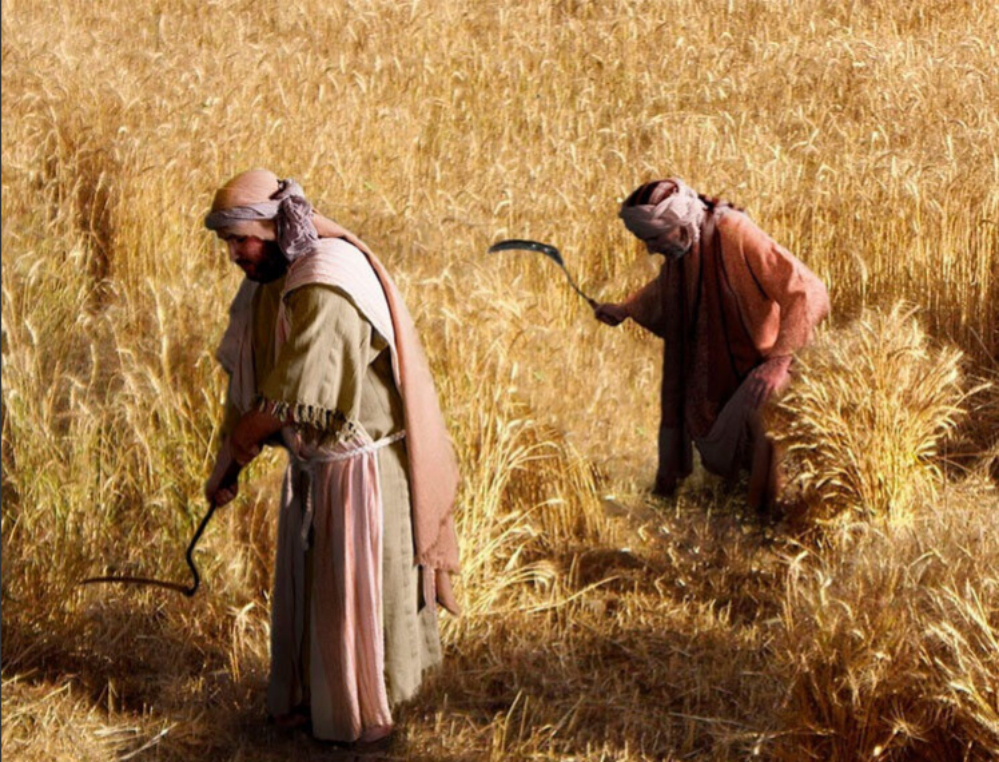John 4:15-22
15 The woman said to Him, “Sir, give me this water so that I will not be thirsty, nor come all the way here to draw water.” 16 He said to her, “Go, call your husband and come here.” 17 The woman answered and said to Him, “I have no husband.” Jesus said to her, “You have correctly said, ‘I have no husband’; 18 for you have had five husbands, and the one whom you now have is not your husband; this which you have said is true.”
19 The woman said to Him, “Sir, I perceive that You are a prophet. 20 Our fathers worshiped on this mountain and yet you Jews say that in Jerusalem is the place where one must worship.” 21 Jesus said to her, “Believe Me, woman, that a time is coming when you will worship the Father neither on this mountain nor in Jerusalem. 22 You Samaritans worship what you do not know; we worship what we do know, because salvation is from the Jews.”
Observations
V15 The Samaritan woman again believes that Jesus is speaking literally. She appears to be receptive to Jesus’ invitation of His living water. However she could be humoring Him. Also, she might be self centered, wanting to save herself the work of coming to the well daily. Not ever thirsting would sound great to anyone living in an arid region.
V16, 17 Jesus turns the conversation to the woman, asking her about her sin. Instead of shaming her, Jesus wants her to see He is no ordinary man. Therefore Jesus asks the woman to go get her husband, with total knowledge of her past and present living situation. The woman responds with a very short response, admitting she has no husband. Her short answer is in sharp contrast to her more lengthy responses, showing that she knows she is in the wrong.
V18,19 Jesus details the number of relationships this woman has had (a total of 5 plus the one she is living with), revealing that Jesus has knowledge beyond an ordinary man. The woman is surprised at how much Jesus knows about her and therefore assumes He is a prophet. Prophets in the Old Testament spoke for God by divine inspiration but prophets could also reveal special knowledge or insight about a man’s inner condition or circumstance (Luke 7:39).
V20 Now it is the woman’s turn to shift the conversation to matters of religion. Where one should worship was a very hot topic of dispute between Jews and Samaritans. The Jews believed that Jews must worship in Jerusalem, while the Samaritans believed it was Mount Gerizim.
Note: Many commentators believe that the woman was quickly changing the topic of conversation because she was ashamed of her sin. However if she was truly convicted by Jesus’ words, she may have wanted to go to the Temple to give sacrifice, pray or worship. If this man was a prophet, who better to answer the correct place of worship question than Jesus?
V21 Jesus uses her question to point her to God. She leans heavily on where her fathers worshipped, but Jesus emphasizes how to worship. With the coming of Christ, two things changed. The Gentiles had full access to God and the temple lost its centrality. Where one worshipped became irrelevant.
V22 Jesus directly tells the woman that Samaritans are worshipping someone they do not know. What does He mean by this? The Samaritans rejected the writings of the prophets, the historical books, and the psalms. Therefore, the Jews had a much more complete understanding of who God was and how to worship Him. It was always God’s plan that salvation would come from the Jews. The Jews were a nation set apart and led by God Himself.
Application
1.) Salvation is a Gift – Jesus knows all the details of this Samaritan woman’s sin, and He also knows all the details of your sin. Your sin doesn’t exclude you from God’s kingdom. Only your refusal of God’s free gift of salvation will prevent you from eternal life. What is stopping you from accepting this incredible gift?
2.) You Can’t Earn Grace – Often many of us have difficulty understanding this concept of grace. We have an incredibly hard time accepting something we don’t deserve or haven’t earned. But the bible is very clear that salvation is for sinners and it is a gift. Thankfully, salvation cannot be earned. The first step towards accepting this gift is seeing yourself as you truly are (a sinner) and who God is (perfect and holy). This requires humility.
The Scriptures remind us who we are. “For all have sinned and fall short of the glory of God” Romans 3:23. And Ecclesiastes 7:20, “Indeed, there is not a righteous man on earth who continually does good and who never sins.” Then we have Jesus Himself who said, “For I have not come to call the righteous, but sinners” (Matthew 9:12, 13). All of us are spiritual beggars that need grace.
3.) Point Others to God – Jesus is not drawn into the woman’s argument of where the “correct” place of worship is. He uses her question to point her to the main issue, God Himself. Therefore, He shares the truth about who God is, and chooses not to argue lesser details. We can learn so much from Jesus. Hence when talking with others about Christ, keep the main One the main thing. Resist arguing about lesser matters and concentrate on the main issues.
For more on the meaning of ‘the gift of salvation’, click here.

